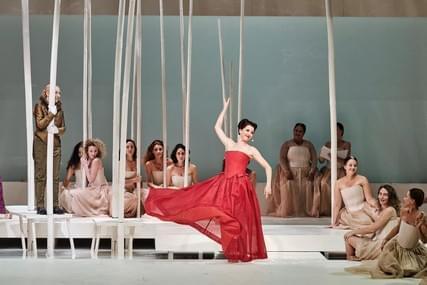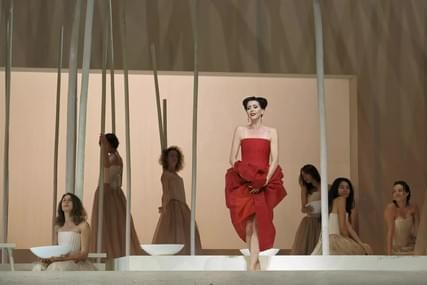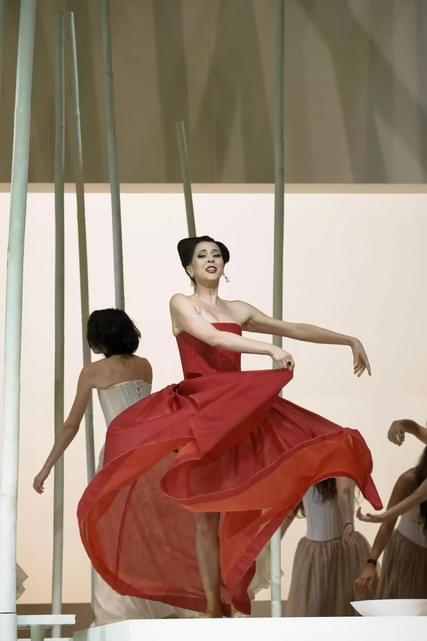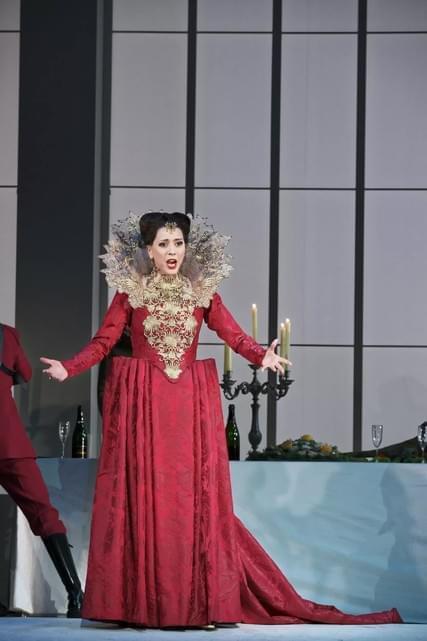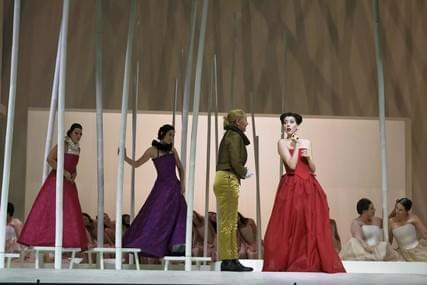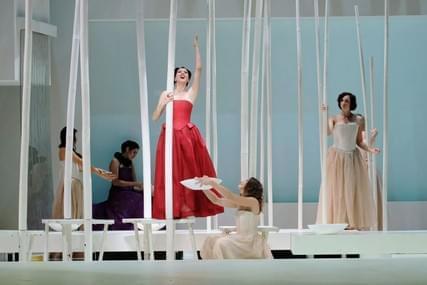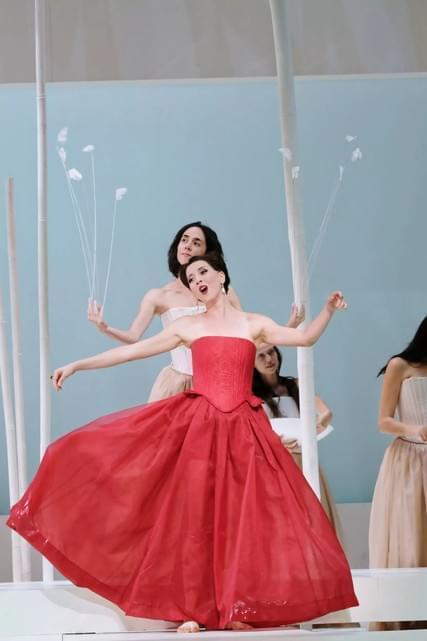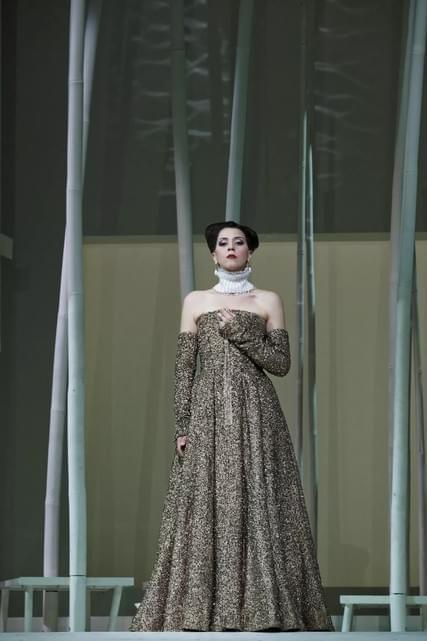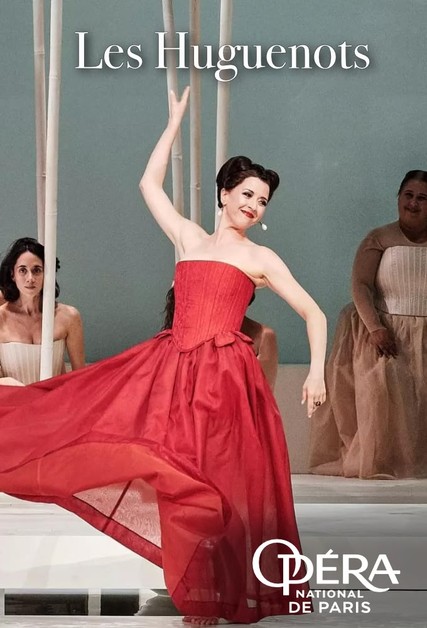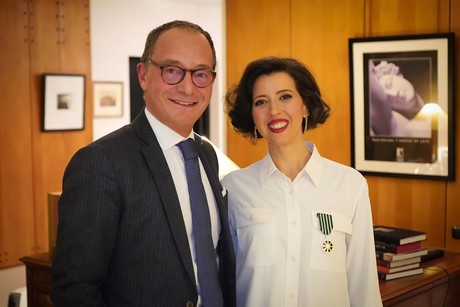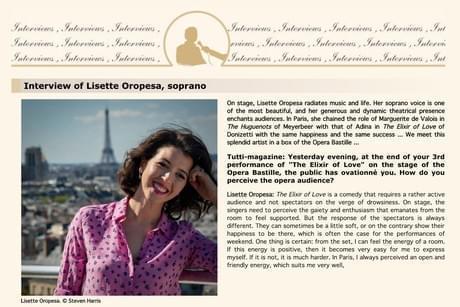Cast
| Marguerite de Valois | Lisette Oropesa | |
| Raoul de Nangis | Yosep Kang | |
| Valentine | Ermonela Jaho | |
| Urbain | Karine Deshayes | |
| Marcel | Nicolas Testé | |
| Le Comte de Saint-Bris | Paul Gay | |
| La dame d’honneur | Julie Robard‑Gendre | |
| Une bohémienne | Julie Robard‑Gendre | |
| Cossé, un étudiant catholique | François Rougier | |
| Le Comte de Nevers | Florian Sempey | |
| Tavannes, premier moine | Cyrille Dubois | |
| Méru, deuxième moine | Michal Partyka | |
| Thoré, Maurevert | Patrick Bolleire | |
| Retz, troisième moine | Tomislav Lavoie | |
| Coryphée, une jeune fille catholique, une bohémienne | Élodie Hache | |
| Bois-Rosé, valet | Philippe Do | |
| Un archer du guet | Olivier Ayault | |
| Quatre seigneurs | John Bernard | |
| Quatre seigneurs | Cyrille Lovighi | |
| Quatre seigneurs | Bernard Arrieta | |
| Quatre seigneurs | Fabio Bellenghi |
Michele Mariotti
DirectorAndreas Kriegenburg
Set DesignerHarald B. Thor
CostumesTanja Hofmann
LightingAndreas Grüter
ChoreographyZenta Haerter
ChorusmasterJosé Luis Basso
About
Giacomo Meyerbeer’s visit to Paris in 1825 was to revolutionise opera. By imposing the Grand Opera genre, the composer made History the pivotal theme of 19th century operatic productions. Les Huguenots is a monumental fresco featuring various impossible loves in the context of the Saint Bartholomew Massacre. First performed at the Paris Opera, the work celebrated its centenary there in 1936, after more than a thousand performances, before being stowed in the archives of the Palais Garnier – the “grande boutique”. For its revival, Andreas Kriegenburg places these timeless conflicts of love and religion in an immaculate setting in which the costumes appear yet more flamboyant and the victims’ blood more violently red.
LIVE ON CULTUREBOX
On the 4th of October, LES HUGUENOTS will be availalbe to watch live on culturebox.



